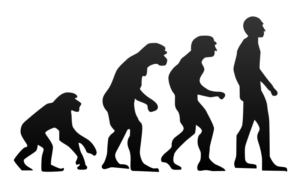Is Sea Level Rise Like Evolution?
“The problem is that rising sea level is like evolution”, he said sitting quietly in his office in a towering office building in Kuwait.
This was one of the top scientific leaders in the country, Western educated, with a PhD. For a moment I was not sure of his meaning and tried to see his metaphor in terms of natural selection and glacial transformation. But even before I had time to analyze the possibility, he clarified what he meant. He continued,
“Even though intellectually the facts tell our brains one thing, many cannot accept the implications emotionally.”

His insight and the comparison to evolution has stayed with me as I continue to encounter the denial and delay to deal with rising sea level with a wide range of audiences. To paraphrase his words:
In science, most of our discoveries do not have immediate impact on our view of the universe and our place in it. Most discoveries are either incremental, academic or have positive promise. But from time to time, there are deeply disturbing new concepts that threaten our very understanding of who we are. Those discoveries are the ones that separate the people who can follow and accept an intellectual point from those whose beliefs will dominate their thinking.
He then told me that until he listened to my presentation explaining sea level rise over geologic time and what was now happening, that he simply had never considered the profoundness, nor the implications. He admitted that with all of his projects he had not thought the degree to which higher sea level is now irreversible, and the scale of heights at risk. But now he understood very clearly and it would change his view of many other things. He thanked me for that.
Science is always coming up with new information and theories. But very few of them really disrupt and disturb our fundamental beliefs about bedrock issues, like our origins, or our place in the universe. Rising sea level is also revolutionary and hits even closer to home, to terra firma, the land on which we live. Of course, evolution is deeply emotional for many because of its implications about our lineage. That raises controversy even today, when the scientific case and trail of evidence keeps getting clearer. If took a long time for acceptance about the concepts of Copernicus, Galileo and others about the Earth orbiting around the sun, rather than our planet being the center of the physical realm. The perspective of changing sea level also changes one’s view of our physical world, but in a way that has much more practical impact. It affects the most tangible and enduring of things: land, property, communities and countries.
Rising sea gets its proof in the historic past but challenges us with the prospect about our future. Not so much as a species, but in terms of our geopolitical world, our economies, and literally where we live. Humans, like many other species, have a very strong sense of place. Even those that wander during their lives, often want to return to the place of their roots, or keep a connection with past generations and culture. Rising sea level changes that prospect in the most powerful way. It is a concept worth pondering as our knowledge and attitudes evolve.

